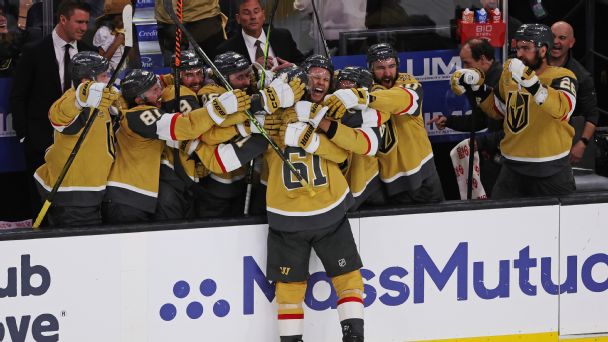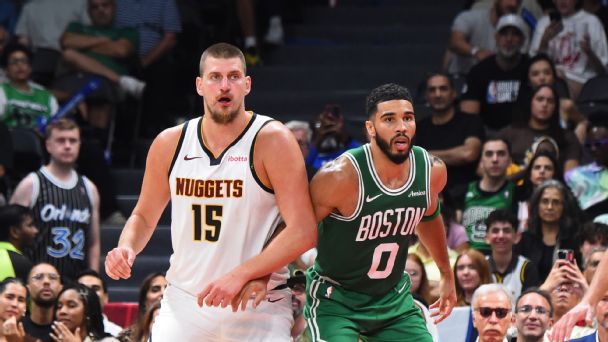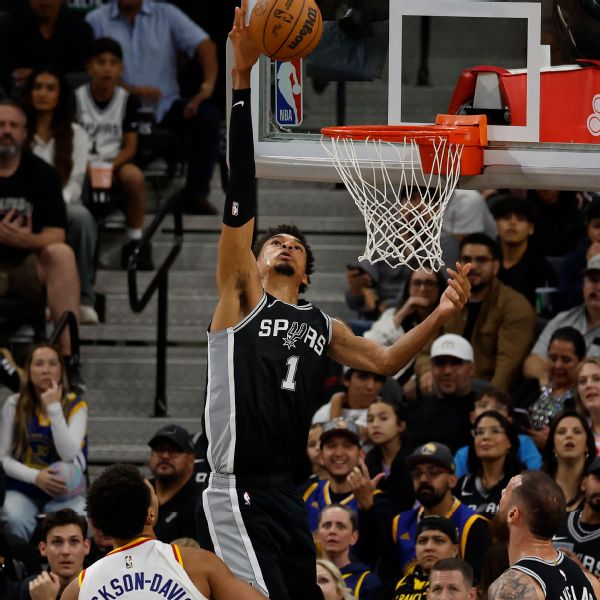When Vegas Golden Knights owner Bill Foley said his plan for his new team was to win a Stanley Cup within six years, he likely didn’t expect to be this spot on.
On Tuesday night, at the conclusion of the team’s fifth season of NHL play, the Golden Knights hoisted the Stanley Cup in front of a sold-out home crowd at T-Mobile Arena.
The victory concluded a run of success — three division championships, two conference championships and now a Stanley Cup — for the once-expansion franchise that has few peers. Just five expansion teams in the history of the big four of North American men’s professional sports have captured a title in an equivalent or quicker span. Here’s a brief look at those teams and their stories:
Milwaukee Bucks (1971)
First NBA season: 1968
Time to title: 3 years
Claiming the honor of quickest expansion-to-championship run of any team on this list, it took the Bucks just three seasons to capture their first NBA title. Aiding Milwaukee’s rapid ascent was the emerging stardom of Kareem Abdul-Jabbar (then known as Lew Alcindor). The Bucks won the rights to Abdul-Jabbar’s services thanks to a victory in a coin flip over fellow expansion outfit Phoenix Suns. The addition of Abdul-Jabbar helped Milwaukee win 29 more games in season two compared with its inaugural campaign. Ahead of Year 3, the Bucks acquired point guard Oscar Robertson to complement Abdul-Jabbar, a decision that paid off. Milwaukee won a franchise-record 66 games that season. In the postseason, the Bucks would lose just two of the 12 games they played, eventually sweeping the Baltimore Bullets to take home the title. The championship preceded a 50-year title drought for the Bucks that stood until current star Giannis Antetokounmpo brought the Larry O’Brien Trophy back to Milwaukee in 2021.
Arizona Diamondbacks (2001)
First MLB season: 1998
Time to title: 4 years
The Diamondbacks’ 2001 title marked the conclusion of one of the most successful expansion arrivals in MLB history. After a lackluster inaugural campaign, Arizona won 100 games in just its second year of MLB play. Playing a key role in the turnaround was the addition of ace Randy Johnson, whose 9.1 WAR ranked second in MLB in 1999, per Baseball-Reference.com. Following an unspectacular third season, the Diamondbacks added another ace in Curt Schilling, immediately giving the club one of the best 1-2 tandems of starting pitching in league history. The veteran duo proved dominant, combining for 43 wins on the season. The rest of the Diamondbacks’ starting rotation combined for 14. Johnson and Schilling started all four of Arizona’s wins in a thrilling seven-game World Series triumph over the defending champion New York Yankees, with the pair earning co-MVP honors. It remains one of just two times in MLB history a World Series honored co-MVPs.
Baltimore Ravens (2000)
First NFL year: 1996
Time to title: 5 years
Led by one of the most formidable defenses in NFL history, the Ravens captured Super Bowl XXXV in just their fifth season in Baltimore following a move from Cleveland. Pro Football Hall of Fame linebacker Ray Lewis led the way, en route to consensus Defensive Player of the Year honors. The Ravens’ defense allowed more than 14 points in just four of their 20 games. In 12 of those games they held the opposing team to single digits. This included back-to-back displays of dominance in the AFC Championship Game (allowing three points against the Oakland Raiders) and the Super Bowl (allowing seven points against the New York Giants). The only points the Giants scored in the Ravens’ final defensive tour de force came on a third-quarter kickoff return. Of Baltimore’s five players named to the Pro Bowl in 2000, four were on defense or special teams: Lewis, defensive tackle Sam Adams, safety Rod Woodson and kicker Matt Stover.
Edmonton Oilers (1984)
First NHL season: 1979
Time to title: 5 years
Having one of the best to ever do it pays dividends in making the expansion transition a smooth one. The Oilers’ inaugural NHL season coincided with Wayne Gretzky’s second season as a pro. He’d go on to pace the Oilers in goals, assists and points (frequently doubling up the next-highest finisher on the team) for each of the next four seasons as the team blossomed into a Stanley Cup contender. In Gretzky’s first year as captain in 1984, the Oilers avenged their 1983 loss in the Final by defeating the New York Islanders to lift the Stanley Cup. Gretzky led the way with a historic 205-point season, one of just four 200-plus point seasons ever, all belonging to him (1982, 1985, 1986). Backing the first-year captain was a young nucleus that would lay the foundation for a dynasty. Edmonton’s top six leaders in points during the regular season and Final were all younger than 25. The Oilers would go on to win four more titles before the decade’s end — but haven’t lifted the Stanley Cup again since their last triumph in 1989-90.
Florida Marlins (1997)
First MLB season: 1993
Time to title: 5 years
The 1997 World Series champion Marlins were perhaps the biggest surprise on this list. Despite consistent improvement, Florida had never finished with a winning record in the club’s four years of existence prior to its championship season. The Marlins steadily climbed the NL East standings over the course of their half-decade of play. They still had never won the division crown entering the 1997 postseason, but the team got hot when it mattered most.
The Marlins made quick work of the San Francisco Giants in the divisional round, completing a three-game sweep. Florida then handled the team that beat it for the NL East title, the 101-win Atlanta Braves, in six games to advance to the World Series. Their postseason run culminated in a thrilling World Series against Cleveland, with the two teams trading wins from Game 1 through Game 7. The decisive game proved the best. Cleveland took an early lead in the third inning, and Miami didn’t knot the score at 2 until it was down to its final two outs in the ninth. Two innings later, a two-out, walk-off single by Edgar Rentería won it for the Marlins. Rentería’s clutch knock up the middle marked one of just nine times in MLB history a World Series was won on a walk-off hit.



